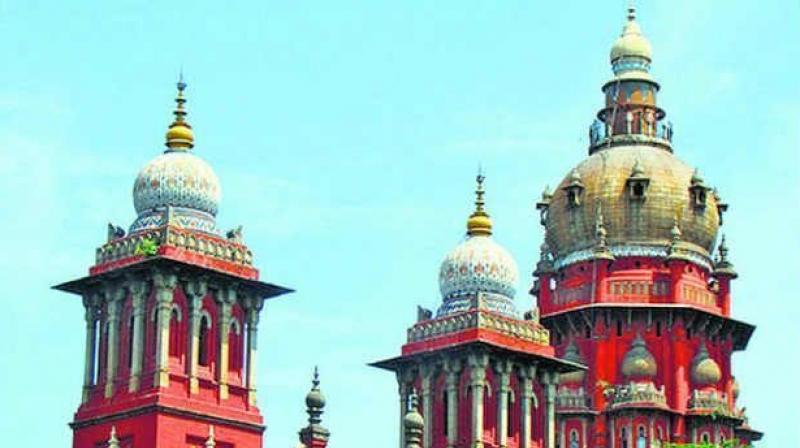Split verdict in Madras HC puts post-graduate medical admissions in limbo

Chennai: Uncertainty over post-graduate medical admissions in Tamil Nadu is bound to persist for some more time. A division bench of the Madras high court on Wednesday delivered a split verdict in a case relating to the award of incentive marks for in-service candidates. The matter will now be heard by a third judge.
The issue relates to the method of assessment of incentive marks for in-service candidates for admission to PG medical courses. As per the proviso to Regulation 9 (4) of the Post Graduate Medical Education Regulations framed by the MCI, a maximum of 30 per cent of marks obtained in NEET will be added as an incentive to those in-service candidates in remote and / or difficult areas.
However, in the prospectus issued by the Directorate of Medical Education for the year 2017-18, a maximum of 10 marks for experience was provided to all candidates. Aggrieved, a doctor had approached the Madras high court and Justice Pushpa Sathyanarayana had on April 17 directed the state government to follow the MCI regulations. Challenging this order, a batch of appeals was filed by doctors.
After hearing the appeals, a division bench comprising Justices KK Sasidharan and SM Subramaniam on Wednesday delivered a split verdict.
While Justice Sasidharan upheld the method prescribed by the state, Justice Subramaniam quashed certain clauses of the prospectus and directed the government to formulate the procedure for admission process in accordance with MCI regulations. Now, a third judge will hear the matter afresh and give quietus to the issue.
Allowing the appeals, Justice Sasidharan said the MCI and the State were committed to promote rural service. The method of awarding incentive marks alone was different. The state seeks to benefit all the doctors, who have opted for difficult area service. The intention of the MCI in framing the regulation was also the same.
The state clearly demonstrated that the method adopted all these years would benefit all the doctors working in the notified areas and there would not be any kind of undue advantage to a section of doctors. There was absolutely no conflict between the central regulation and the state policy on account of different criteria followed for awarding incentive marks. The method evolved by the state would therefore meet the equality test under Article 14 of the Constitution, the judge added.
Dismissing the appeals, Justice Subramaniam in his order said in view of the legal principles, in respect of the MCI, PG Medical Education Regulation, 2000 this court was of the firm view that this court was inclined to mould the prayer in order to grant substantial relief to all concerned.

